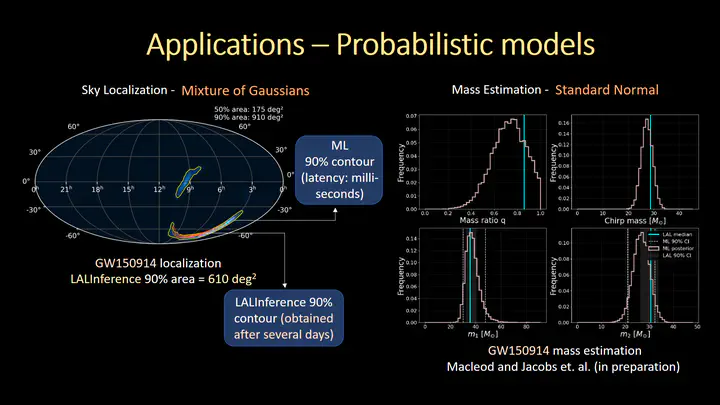 Applications of probabilistic deep learning for gravitational wave parameter inference
Applications of probabilistic deep learning for gravitational wave parameter inferenceAbstract
In the era of multi-messenger astronomy, it is imperative to conduct rapid estimation of the masses and sky directions of gravitational wave sources for prompt electromagnetic follow-up observations. However, currently used Bayesian parameter estimation techniques by the LIGO-Virgo collaboration are not fast enough to enable detections of electromagnetic signatures arising during or just after the merger of the binary system. In this talk, I gave an overview of the efforts conducted using probabilistic deep learning algorithms for fast likelihood-free inference of gravitational wave source parameters at comparable accuracy to the optimal Bayesian inference results. I also discussed deep learning techniques for extraction of binary black hole gravitational wave signals from noise and applications of the method for accurate sky localization and chirp mass estimation.